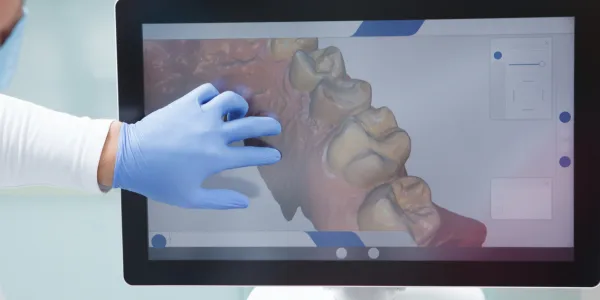In recent years, artificial intelligence (AI) has emerged as a transformative force across various industries. Dental practices, traditionally known for their reliance on manual processes, are now tapping into the potential of AI to streamline operations and enhance efficiency. One of the most significant areas where AI is making an impact is financial management. From billing to budgeting, AI is helping dental practices cut finance tasks in half, allowing dental professionals to focus more on patient care.
The Impact of AI on Dental Practice Financials
AI technologies are transforming the way dental practices handle their financial operations. Automated systems can manage billing, track expenses, and even analyze financial trends, providing insights that were previously time-consuming to gather. By reducing the need for manual data entry and complex calculations, AI frees up valuable time for dental staff, allowing them to concentrate on their core responsibilities.
Benefits of AI in Financial Management
1. Efficiency and Accuracy: AI-powered systems can process large volumes of data quickly and accurately. This means fewer errors in billing and accounting, leading to smoother financial operations.
2. Cost Savings: By automating routine tasks, dental practices can reduce administrative costs. Fewer errors also mean less money spent on correcting mistakes, further contributing to cost savings.
3. Improved Compliance: AI systems can help ensure that financial practices adhere to the latest regulations and standards. This is crucial in maintaining compliance and avoiding costly penalties.
4. Enhanced Decision-Making: AI can analyze financial data and provide actionable insights, aiding dental professionals in making informed decisions about practice management and growth strategies.
Real-World Applications of AI in Dental Financial Management
Automated Billing: AI systems can generate invoices and process payments automatically, reducing the time spent on manual billing processes. This ensures timely payments and improves cash flow.
Expense Tracking: AI can categorize and track expenses, providing detailed reports that help practices monitor their financial health. This transparency allows for more effective budgeting and financial planning.
Predictive Analytics: By analyzing historical data, AI can forecast future financial trends. This helps practices anticipate challenges and opportunities, allowing for proactive management.
Tips for Implementing AI in Your Dental Practice
1. Choose the Right Tools: Not all AI solutions are created equal. It’s essential to select tools specifically designed for the dental industry to ensure compatibility and effectiveness.
2. Train Your Team: Implementing AI requires a shift in how tasks are performed. Providing adequate training ensures that your team can leverage these new tools effectively.
3. Start Small: Begin with one or two AI applications and gradually expand as you become more comfortable with the technology. This approach minimizes disruption and allows for a smoother transition.
4. Monitor and Adjust: Regularly review the impact of AI on your financial operations. Use this information to make adjustments and optimize the use of AI tools.
AI is no longer a futuristic concept; it’s a practical solution that’s reshaping the landscape of dental practice management. By embracing AI, dental practices can achieve greater efficiency, reduce costs, and enhance their financial health, ultimately leading to better patient care and satisfaction.







